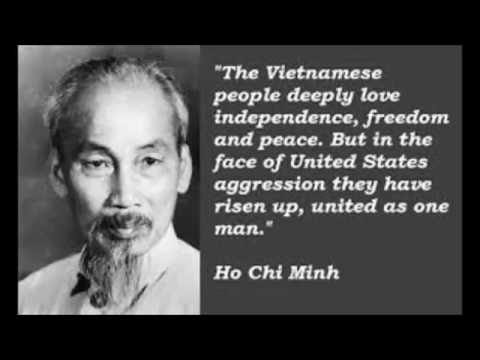Hi all,
Thank you for joining me for this week’s song, The Right to Live in Peace, by Victor Jara.
If you’d like to hear the song before you read the background, I’ve included two YouTube videos below the article.
Below, you’ll find my interpretation of the lyrics. I’ve written the lyrics in italics. As with most everything, there are many ways to interpret things. I invite you to leave a question or comment at the end.
For Japanese students, vocabulary words in bold are provided in Japanese below.
The Song
(522 words)
By 1971, when this song was written, the U.S. had been involved in the war in Vietnam for many years. From the 1950s, it had spent millions of dollars to support the French in keeping their colony. When France finally wanted to end the conflict, Vietnam was divided into to parts, north and south.
Born in Vietnam in 1890, Ho Chi Minh travelled around the world as a young man, living and working in Europe. In his 30s, he became a socialist and began advocating for Vietnam’s independence from France. He asked the French Prime Minister and the U.S. President to help end France’s rule over Vietnam.
The U.S. was afraid that Vietnam would become a communist country. If that happened, other countries in the area such as Thailand and Japan might also follow. American presidents decided to help South Vietnam in order to prevent the spread of communism. They sent military equipment and later, military personnel.
In Chile, a singer, songwriter, and activist named Victor Jara wrote a song about Vietnam called The Right to Live in Peace. [You can learn more about Victor Jara in a previous post: https://louisehaynes.substack.com/p/victor-jara-singer-and-fighter-for-the-people] He wrote it in support of the right of the people of Vietnam to choose their own destiny without interference from other countries. Poet Ho Chi Minh, strikes from Vietnam for all of humanity, in other words, Ho is leading his people out from under foreign rulers.
No cannon will wipe out the furrow of your rice paddy. Jara sends a message: no matter how much they attack, you will survive.
Indochina is the place beyond the wide sea where they blow up the flower with genocide and napalm. The American military used a kind of chemical weapon called napalm. It destroyed the plants in the jungles of Vietnam. The people of Vietnam knew very well how to move in and around those jungles, so the U.S. tried to destroy the jungles to make it easier to find the North Vietnamese soldiers.
The moon is an explosion that blows out all the clamor. This is a sentence that makes the listener imagine a bomb that is exploding and that is so loud that you can hear any of the other noise around.
Uncle Ho, our song is fire of pure love, it’s a dovecote dove, olive from an olive grove.
It is the universal song chain that will triumph
The right to live in peace.
Recently, in 2019, there were protests in Chile by over a million young people who wanted social change. A group of Chilean artist released a new version of the song. The new lyrics include:
The right to live without fear in our country, in consciousness and unity with all humanity,
with all humankind.
The right to live in peace with respect and freedom.
A new social pact (promise)
Dignity and education.
Let there be no inequality.
Peace is our song.
This new version became a very popular song, not only in Chile but in many countries around the world. Below, you can hear both versions of the song.
What do you think about the new version? How does this song relate to any country? I’d love to read your comments!
VOCABULARY
socialist 会主義者
advocate説く
destiny運命
interference干渉
humanity人間性
furrow溝
rice paddy田んぼ
genocide大量虐殺
jungles密林
clamor大騒ぎ
dovecoat (a shelter with nest holes for pigeons)
triumph 勝利
consciousness 人心地
unity 団結
dignity 威厳
Sources
Obejas, A. On Víctor Jara’s “The right to live in peace.” Poetry Foundation. https://www.poetryfoundation.org/harriet-books/2022/09/on-victor-jaras-the-right-to-live-in-peace. Accessed 20 June 2023.
The right to live in peace: The ninth newsletter (2021). Tricontinental. (2021, March 5). https://thetricontinental.org/newsletterissue/9-victor-jara/. Accessed 20 June 2023.




